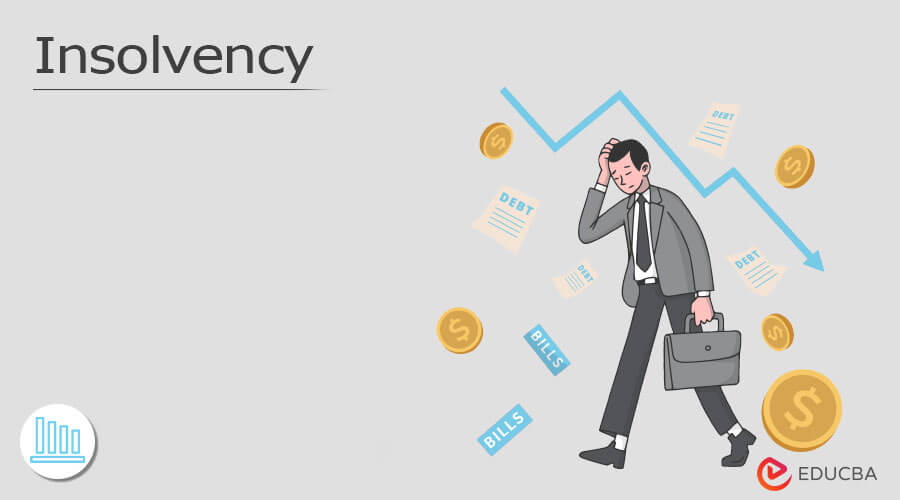Getting The Insolvency Practitioner To Work
Getting The Insolvency Practitioner To Work
Blog Article
Insolvency Practitioner Can Be Fun For Anyone
Table of Contents10 Easy Facts About Insolvency Practitioner DescribedThe Greatest Guide To Insolvency PractitionerInsolvency Practitioner Can Be Fun For EveryoneSome Ideas on Insolvency Practitioner You Need To KnowInsolvency Practitioner - QuestionsAll about Insolvency PractitionerThe Buzz on Insolvency Practitioner
Insolvency is when liabilities are better than the worth of the business, or when a borrower can not pay the financial debts they owe. A business can end up being bankrupt as a result of a number of scenarios that result in bad cash circulation. When confronted with insolvency, an organization or individual can get in touch with lenders straight and restructure financial obligations to pay them off.Bankruptcy can result in insolvency procedures, in which lawful activity will certainly be taken versus the bankrupt person or entity, and possessions might be sold off to settle exceptional debts. Company owner might speak to financial institutions straight and restructure financial obligations into more convenient installations. Financial institutions are generally responsive to this technique because they want to be paid back and avoid losses, even if the repayment gets on a postponed timetable.
The Basic Principles Of Insolvency Practitioner
The proprietor creates a proposition outlining just how the debt may be restructured using price decreases or various other plans for assistance. The proposal shows financial institutions how the business might generate adequate capital for successful operations while paying its financial obligations. Usually, a forgiven debt may be thought about revenue by the Internal Income Solution (IRS).

See This Report about Insolvency Practitioner
Business may wind up paying large amounts of cash in damages and be overcome procedures. When procedures discontinue, so does the firm's earnings. Absence of income leads to accounts payable and lenders requesting money owed to them. Some companies end up being financially troubled due to the fact that their items or solutions don't develop to fit consumers' altering needs.
Costs exceed earnings and bills remain unpaid. Cash-flow bankruptcy happens when a firm has the properties to cover their financial obligations yet they are in the incorrect form, such as genuine estate instead of fluid funds. Balance-sheet insolvency, on the other hand, shows a lack of properties in any type to cover financial obligations.
The internal revenue service states that an individual is insolvent when the total responsibilities go beyond total assets. A personal bankruptcy, on the various other hand, is an actual court order that illustrates exactly how an insolvent person or service will certainly pay off their lenders, or how they will certainly sell their possessions in order to make the repayments.
3 Easy Facts About Insolvency Practitioner Described

Financial obligation combination is when you incorporate several loans into one brand-new finance, typically to attain better terms. Bankruptcy is not the like bankruptcy, although a firm that has actually become bankrupt may file for insolvency. Bankruptcy is the state of not having the ability to pay your obligations while personal bankruptcy is a legal procedure to discharge your debts.
Understanding the factors that can lead to insolvency, such as overspending, can aid you stop bankruptcy and its consequences.
The 25-Second Trick For Insolvency Practitioner
It is well known that directors and police officers of firms (and supervisors of restricted liability firms) owe fiduciary obligations to their companies and their shareholders (or members). These fiduciary responsibilities are specified by state statutes and, though there are variants from state to state, they generally include a duty of commitment and a responsibility of treatment.
The responsibility of care requires directors and police officers to work out persistance, to make educated choices, and to act in excellent confidence to ensure that their actions are in the very best interest of the company. Though beyond the scope of this discussion, some states enable these responsibilities to be limited either by so noting in the organizational papers or conforming with various other needs.
The Insolvency Practitioner Diaries
Many states define insolvency in two ways( 1) when a business's liabilities come to be more than the sum of its possessions or (2) when the company ends up being unable to pay its debts as they end up being dueand welcome both interpretations (Insolvency Practitioner). The shift in obligations happens because when a firm is financially troubled, there is no value in the business past that owed to the firm's creditors so that the equity owners no much longer have an economic risk in the business
Beware regarding offering investors best site favoritism at the expense of lenders (e.g., accrediting and moneying a returns or a supply redemption). Beware about favoritism between classes of shareholders. Clear up initiatives to discover all the truths prior to taking a particular strategy; supervisors must genuinely believe that any decisions made remain in the ideal rate of interests of the firm in its entirety (i.e., choices will be assessed in hindsight due to the impact of such activities on the company).
In any personal bankruptcy or insolvency case, payments made to specific financial institutions at the expense of various other creditors can be clawed back, particularly if my sources there is some link in between the business and the creditor. Take into consideration proposing at a yearly investor meeting (or any various other conference of investors) a resolution affirming that all previous company choices and actions taken by the supervisors and policemans of the firm were taken in good belief after an exercise of practical treatment.
Insolvency Practitioner Fundamentals Explained
Totally divulge any personal or business partnerships with events on the other side of transactions entailing the company to prevent the appearance of a dispute of interest. In reviewing potential fund increasing transactions or a sale of possessions of the troubled company, understand that these purchases might be inspected later on taking into account any kind of subsequent growth of directors' fiduciary duties to consist of creditors.
Report this page